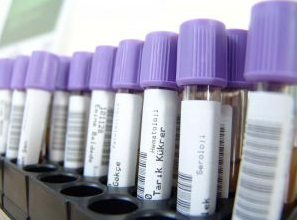
Busy expat women may find health tests and regular screenings fall by the wayside.
The type and frequency of health screenings for a woman varies depending on her age. As expat women, raising a family and coping with living abroad can mean health tests take a backseat. So what type of screening is recommended for when?
A common misconception is that women’s health is limited to gynecology and obstetrics. This is far from the truth and many women themselves aren’t aware of what they should be screened for, when and how often. Preventative screenings are a way of picking up on a problem before symptoms show. If carried out correctly it can stop you from developing a potentially life-threatening disease.
What screenings should women in their 20s and 30s get?
Young women are encouraged to use their weight and height to calculate their Body Mass Index (BMI). This can determine whether their weight is within a normal, healthy range (18.5 to 24.9). Starting at 20, women should have their cholesterol measured every five years. Raised cholesterol can increase your risk of a stroke and heart disease.
The exact age depends on the rules in your country, but women in their 20s should have their first pelvic and PAP smear test. In the UK, from 25 onwards women should visit their GP every three years to have a smear test. This checks for irregularities that could develop into cervical cancer. In some countries, women are advised to have their first smear between 18 and 20 years of age. Women with a family history of ovarian cancer should also start screening for this, hard to detect, cancer.
Screenings for women in their 40s
As women get older the number of screenings recommended for them increases. Between the ages 40 and 65, women should have their blood pressure checked every two years. After 45 years it’s recommended women get their blood glucose levels checked regularly. This is to help detect diabetes. If you have a family history of hypertension or diabetes, glucose screenings may be recommended earlier.
Starting at 40, women should also receive regular mammograms and routinely conduct breast exams to detect any changes or lumps in the breast tissue. Mammograms are usually carried out every one to two years.
For women in their 50s and 60s
As women age their likelihood of developing certain diseases increases, thus the number of screenings also rises. In addition to the tests carried out in their 40s, women should also be checked for colon cancer starting at age 50. For women aged 65 and above, bone density scans are recommended to check for osteoporosis. This condition weakens bones and increases the risk of fractures. Though present in both men and women, it is more prevalent among postmenopausal women.
Conversely, for women over the age of 65 it isn’t considered necessary to have a regular PAP smear if their previous results have been normal.
For more information on recommended health screenings consult the Centre for Disease Control (CDC) website.